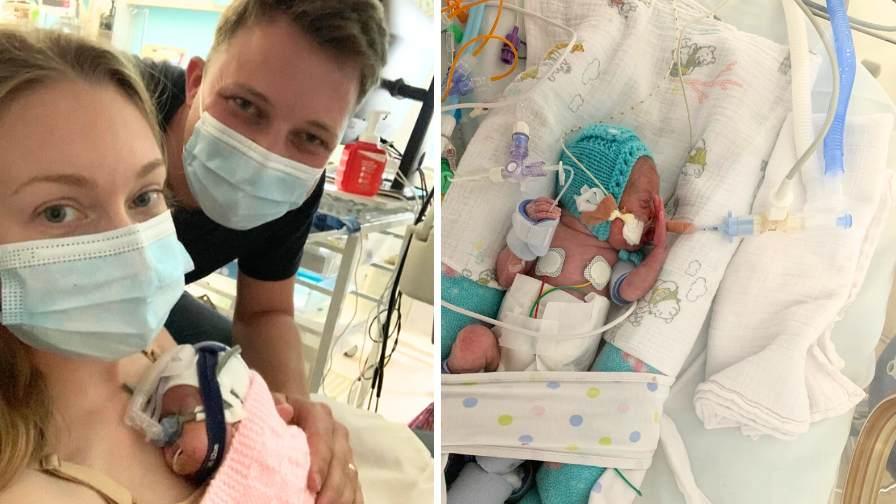breadcrumb navigation:
- Home /
- Research /
- Family stories /
-
current page
Elsie's story: Premature birth
Elsie's story: premature birth
Published on
Updated:

Elsie's story
Premature birth
In May 2022, Elsie was born extremely prematurely. Her father Chris says: “Debi’s pregnancy was classified as high-risk due to her family’s medical history.” At 23 weeks, Debi lost her mucus plug and began leaking amniotic fluid. Their worst fears were realised when her waters broke and an infection developed, requiring immediate delivery. Elsie was born at just 23 weeks and 5 days, weighing 600 grams, with little hope for survival. “We were told her chances were 1000 to 1,” recalls Chris.
Against all odds, Elsie survived, spending 211 days in the neonatal intensive care unit (NICU). She faced numerous hurdles including chronic lung disease, ventricular hypertrophy, retinopathy of prematurity (ROP) and required surgery for a perforated stomach.
We practically lived at the hospital. Elsie was so fragile and we needed to be constantly vigilant.

Managing Elsie’s care while balancing daily life was challenging, especially as Chris’ paternity leave was just two weeks. “I started a support group for dads where I could talk to others going through the same thing,” he says.
Two years on, Elsie’s health continues to require constant monitoring due to adrenal insufficiency which makes her vulnerable to illness. Despite this, Chris reflects on her progress: “She’s getting bigger and stronger.” Elsie is now walking, talking, and thriving, though she still faces developmental delays. Elsie has been readmitted to the hospital eight times since discharge due to respiratory infections. Elsie’s adrenal insufficiency requires daily steroids and constant care. “We have to be extra careful if she gets poorly,” says Chris.

Each year, around 55,000 babies are born prematurely in the UK – and sadly, more than 1,000 babies die each year after being born too soon. Action Medical Research is funding a team at University College London who are developing an innovative antimicrobial therapy that aims to boost the body’s natural defences against infection. If successful, this could ultimately help prevent preterm labour in women at high risk of giving birth too soon – improving survival and quality of life for their babies.
Speaking about the prospect of preventing preterm birth in high-risk pregnancies, Chris says: “The prospect of preventing preterm birth in high-risk pregnancies means so much to us. A day that brings most parents their greatest joy, marked the beginning of our most challenging journey. Those seven months in hospital watching the person you love the most fight for their life, whilst you can only do very little to help, not to mention the ongoing challenges that follow, make it a deeply painful experience. The greatest suffering, of course, is endured by the babies themselves, born into the struggle through no fault of their own. No one should have to face this, and as a parent you’d give anything to trade places with your child. Having come through this, it’s now important to us to do anything we can do to prevent this happening to others in future.”
Elsie is now a confident, cheeky and playful child who loves outdoor activities. Chris set up a NICU dads’ WhatsApp group which continues to provide support for other families who have been through similar struggles.
The experience has made expanding their family uncertain:
We feel like we missed out on so many experiences you usually hear about when having a baby, but we also know we couldn’t go through the same thing again.
For now, their focus is on Elsie’s continued care. “Her resilience is undeniable. We are so proud of her,” says Chris.
Action Medical Research is committed to funding research to tackle premature birth, prevent pregnancy complications and find the best ways to care for sick and vulnerable babies. Find out more at www.action.org.uk/premature.
